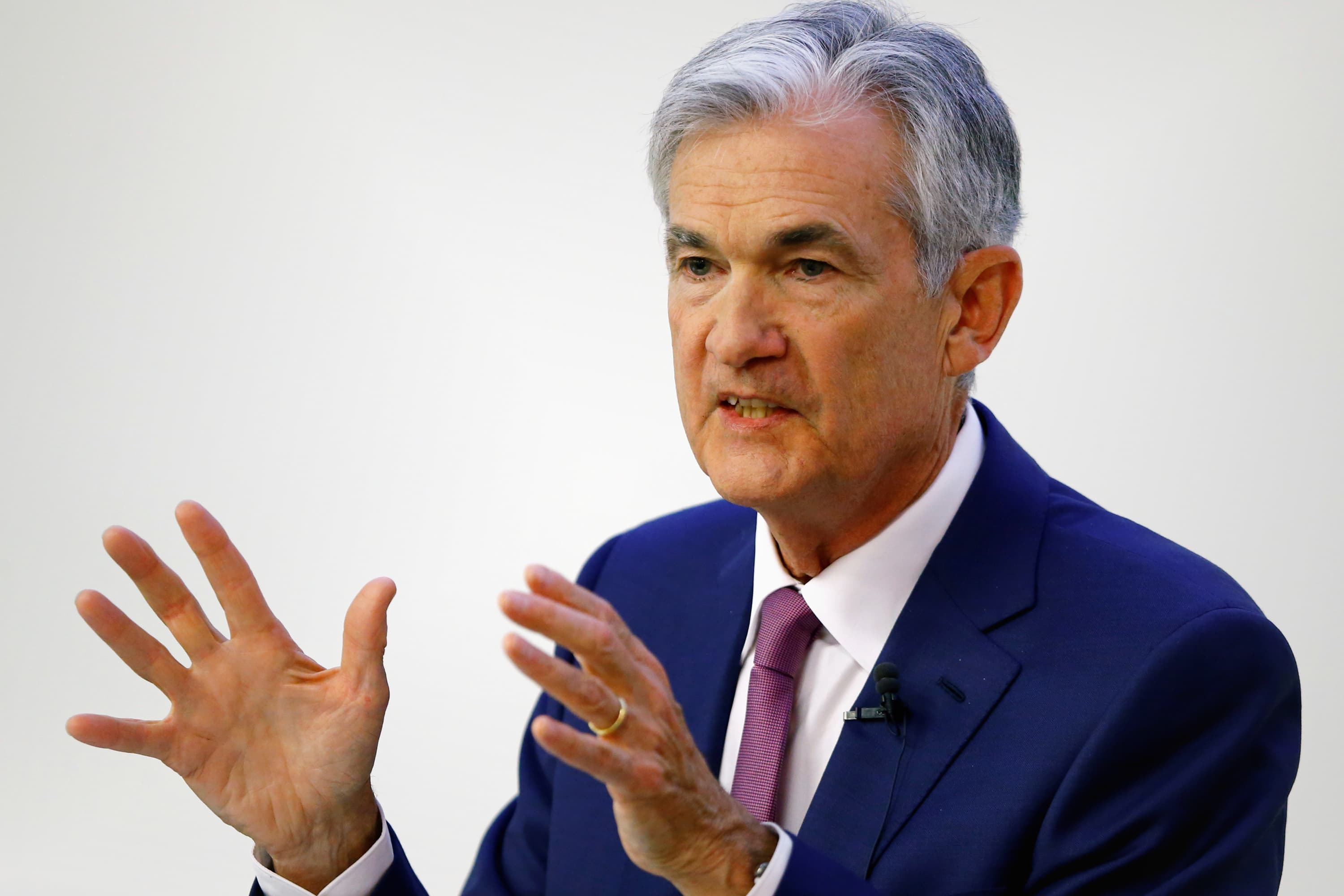Federal Reserve Chairman Jerome Powell speaks during the "The Economic Outlook and Monetary Policy" panel discussion hosted by the Swiss Institute of International Studies at the University of Zurich in Zurich, Switzerland September 6, 2019.
Arnd Wiegmann | Reuters
Federal Reserve Chairman Jerome Powell signaled that interest rates are unlikely to rise anytime soon, saying Monday that the central bank remains firmly committed to meeting its inflation goals.
The Fed considers a 2% inflation rate to be a signal of sustainable growth and a level that keeps interest rates high enough to allow for mobility in the event of an economic downturn. However, inflation has run well below that level for 2019 despite three interest rate cuts over the past four months.
As part of a speech he delivered in Providence, Rhode Island, Powell expressed a sense of urgency in meeting the inflation part of the Fed's dual mandate. He said low inflation expectations feed on themselves and make it tougher for the Fed to support the economy.
The chairman said in prepared remarks that "it is essential that we at the Fed use our tools to make sure that we do not permit an unhealthy downward drift in inflation expectations and inflation. We are strongly committed to symmetrically and sustainably achieving our 2 percent inflation objective so that in making long-term plans, households and businesses can reasonably expect 2 percent inflation over time."
A symmetric goal means policymakers would be content with inflation running a little above or below the 2% level. Other Fed officials have said that a period of time above 2% would be fine, with some members suggesting the Fed make an express commitment not to raise rates until the goal is met. Higher rates are used to keep inflation low.
Focus on the labor market
Broadly speaking, Powell repeated language he and other officials have used lately, saying he sees "the current stance of monetary policy as likely to remain appropriate" and "well positioned" so long as current "generally good" conditions persist. The Federal Open Market Committee at its October meeting cut its benchmark rate another quarter point to a range targeted at 1.5%-1.75%.
"At this point in the long expansion, I see the glass as much more than half full. With the right policies, we can fill it further, building on the gains so far and spreading the benefits more broadly to all Americans," he said.
In addition to the inflation commitment, Powell also elaborated on another issue that has gained more attention in recent days, namely the still-low labor force participation rate in the U.S. as well as the fairly muted wage gains.
While the current labor force participation level is 63.3%, the highest in more than six years, Powell said it still is low compared to other countries and is another area of focus the Fed could use to ensure that the benefits of the decade-long recovery are spread more evenly. The pre-recession participation rate was above 66%.
Powell said the Fed can help the participation and wage issues "by steadfastly pursuing our goals of maximum employment and price stability" though he said broader programs to support higher wages and a more engaged labor force are "beyond the scope of monetary policy" and more suited to legislators in Congress.
"These policies could bring immense benefits both to the lives of workers and families directly affected and to the strength of the economy overall," he said.
